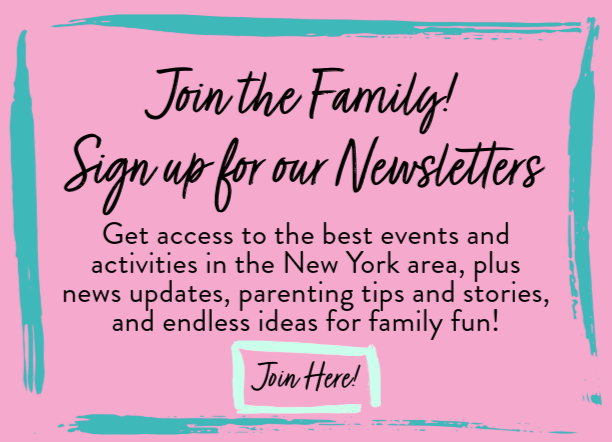
My Battle with Postpartum Depression
Depression is a funny little illness. Because you look and feel like you’ve been through the spin cycle of a washing machine, yet everyone keeps telling you that you’re totally fine. You’re fine, your family says. You’re fine, your friends say. You’re fine, the doctor says. You’re healthy, your family is healthy, and everything is perfectly fine in your life.
If you’re supposedly so fine, then why don’t you feel fine?
Why, instead, do you feel like every moment awake is an assault on your mind and body, like the very act of taking air into your lungs is earth-shatteringly terrifying, and like you are no longer even living inside of yourself, but instead just functioning as a separate, mindless entity, numbly hovering over your former self in the meager hope that someday you can return and feel, dare I say, normal again?
And all the while, as you’re feeling increasingly un-fine, the world around you is spinning away. People are still living their lives, still going to work, still caring for their children, still eating and sleeping and smiling and laughing every day. They’re doing all the things you did back when you really were fine. Except now, everyone else is fine. They go right on living while you teeter dangerously on the brink of insanity, wondering how you’ll make it another day, another hour, even another minute.
I had my miscarriage in the middle of Thanksgiving dinner. I had watched the parade in the morning, dressed my son in his holiday finest, then drove over to my mom’s house and sat down with my family at the table to eat. Sometime between my first stuffed mushroom and second slice of turkey, I began to feel the stabbing pangs of labor pain. Two terrifying hours later, I emerged from an emergency room bathroom stall with a tiny, balled-up fetus wrapped inside of a sanitary napkin. Horrified and shaking, I handed it to the triage nurse, who told me I was running a fever and needed to calm down.
Please don’t feel sorry for me. My story is only seemingly dramatic because hospitals, blood, and death tend to fill me with sheer terror, and retelling the events of that day is simply impossible to do without conveying just how dramatic it all felt at the time. But in reality, I’d been only eight weeks along, was quite optimistic that I could conceive again soon, and honestly thought I was going to be okay. I mean, much worse things have happened to people much more misfortunate than myself. So after about ten miserable hours in a dim hospital room, I went home and crawled into bed, exhausted and sad but feeling that the worst of it was over.
Or so I thought.
I did not know, at that point, that postpartum depression could happen after a miscarriage, even one occurring in just the first trimester. I didn’t know that the overflow of hormones coursing through my body after this event – combined with the severe loneliness brought on by a harsh winter, a young child who needed more from me than I could possibly give at the time, and a hardworking husband who was never home – would lead me into a frightening downward spiral so intense that I am still recovering from it today.
Psst… Here’s What Mothers Need to Know About the New Postpartum Depression Drug, Zurzuvae
My husband used to leave for work around 6a.m., and I’d wake up at 5a.m. just to savor the only adult company I’d enjoy all day until he returned, already half-asleep, around 9p.m. Those mornings I’d sit on the floor of the foggy bathroom while he showered for work and we’d chitchat back and forth. It was the closest to normal that I would feel all day.Then I’d climb back into bed when he left, around the same time my son would usually wake up, and we’d watch cartoons together until the sun came up. And then I’d brace myself for a very long, lonely, dreary, anxiety-ridden day.
The darkest period of my life was like one, long, drawn-out anxiety attack. I’ve struggled with anxiety my entire life, but never like this. My days were spent pacing the floors of my three-room apartment for hours at a time, fingers tearing at the hair behind my neck and pulling until it bled. I’d clutch the phone in my hands and cry, praying for it to ring, wishing for someone to talk to, anyone at all who could distract me from my personal hell for a moment or two. I’d open every shade and curtain in the house, hoping the daylight might flood my home and chase my shadowy demons away. I’d wait by the window, praying, begging, pleading for my husband to pull up in his car and save me from the bitter, paralyzing loneliness.
One morning, after I’d gotten out of bed, I fainted as I poured my son’s breakfast cereal. It could have been from dehydration, or anxiety, or maybe just plain hunger, as I hadn’t been able to force down more than a slice or two of bread in about two days. I quickly awoke to find my son, confused and visibly upset, pleading with me to get up. At that point, I really needed help. For my little boy, my sweet, innocent, scared little child, I had to come out of this. I simply had to. There was just no other way.
Recovery was a gradual process. With the help of my family, some medication, and a whole lot of self-discipline and self-discovery, I eventually began to feel like myself again.
The following March, I was thrilled to learn that my daughter was on the way. This was a blessing for more than just the obvious reasons, because it forced me to stop taking my medication and learn to heal from my postpartum depression entirely on my own. Honestly, I didn’t even think I was capable of that until I had no other choice. So I believe my little girl saved me from what might have been a different kind of downward spiral.
You don’t need to be a parent to find yourself coping with depression, although I know many are. You don’t need to be married, divorced, employed, unemployed, grieving, sick, healthy, rich, or poor. You don’t need to have any reason at all. For many of us, depression and anxiety are simply things we struggle with every single day. They’re as real to us as breathing. Today, I still battle depression and anxiety, although it looks and feels much different when hormones aren’t involved as much.
Your depression affects everyone around you, whether you realize it or not: your family, your children, your friends, your job. Sometimes people understand, but most of the time, they don’t. If you’re lucky, someone will see you struggling, and they’ll reach out to you. If you’re really lucky, you’ll find a place within yourself where healing can begin on its own – where you can realize how much the people in your life need you – and you can learn to be you again.
My journey is an ongoing one. Some days are good, some not so much. I know I’ll never be 100 percent better. But I’ll never stop trying, either.
Psst…. Read about Motherhood Milestone FOMO: How Moms Can Cope With Social Media Pressure






